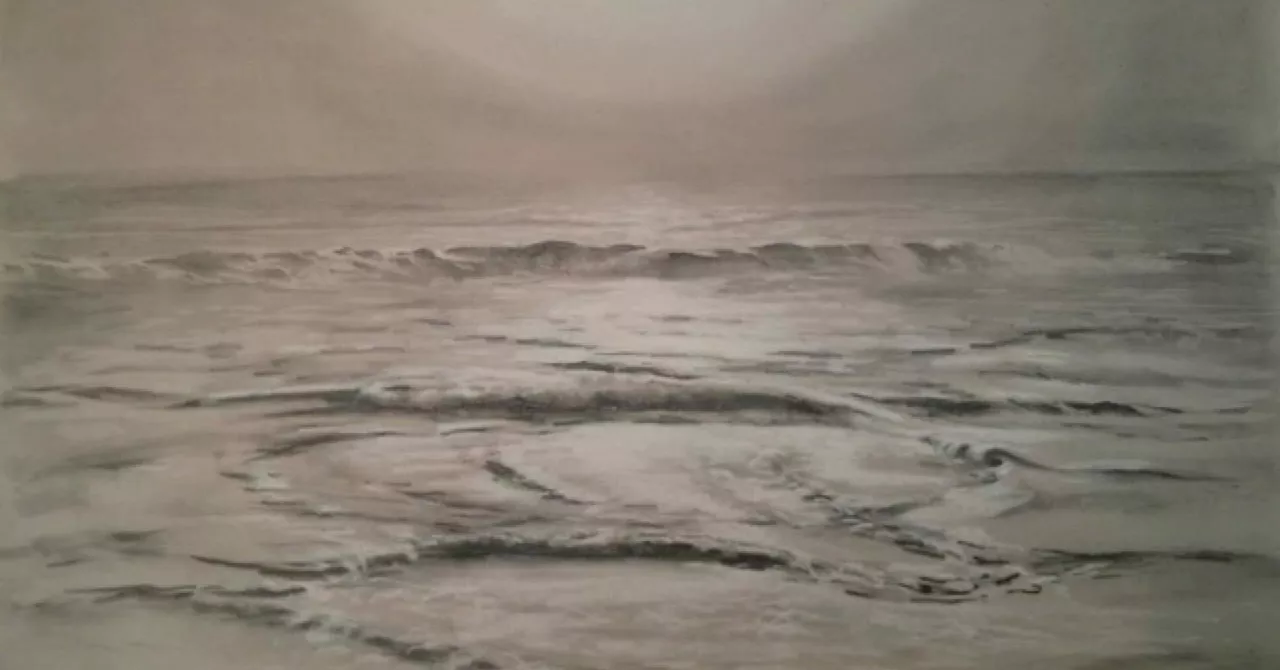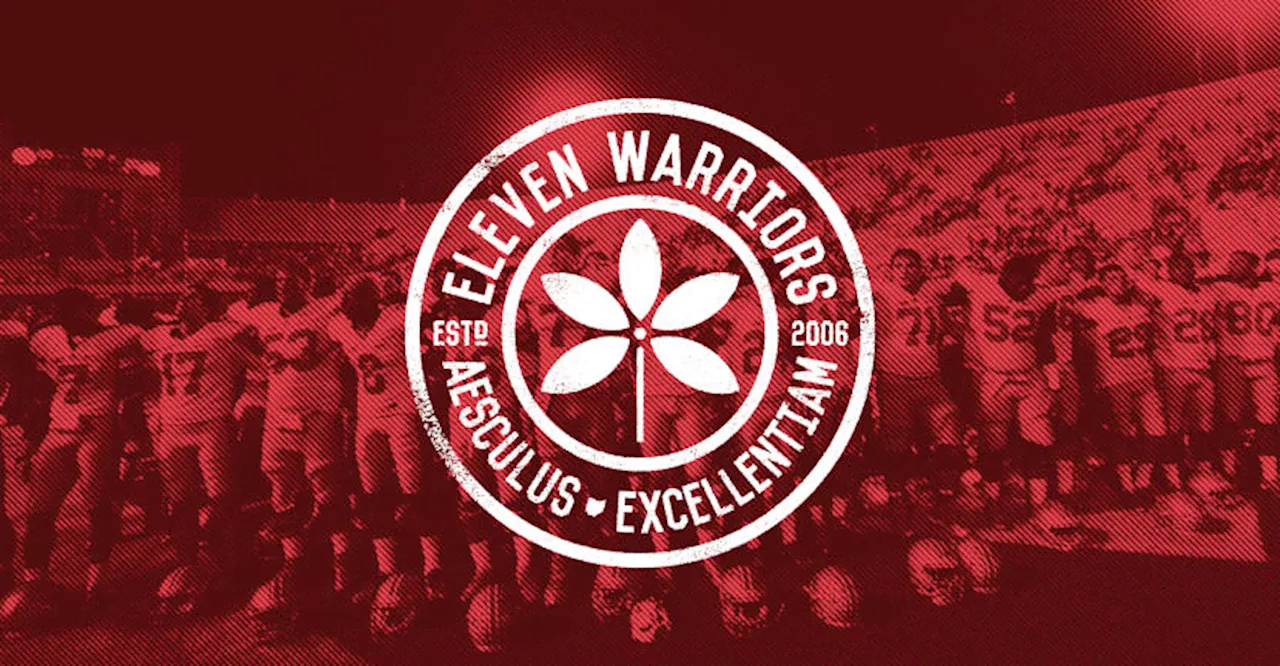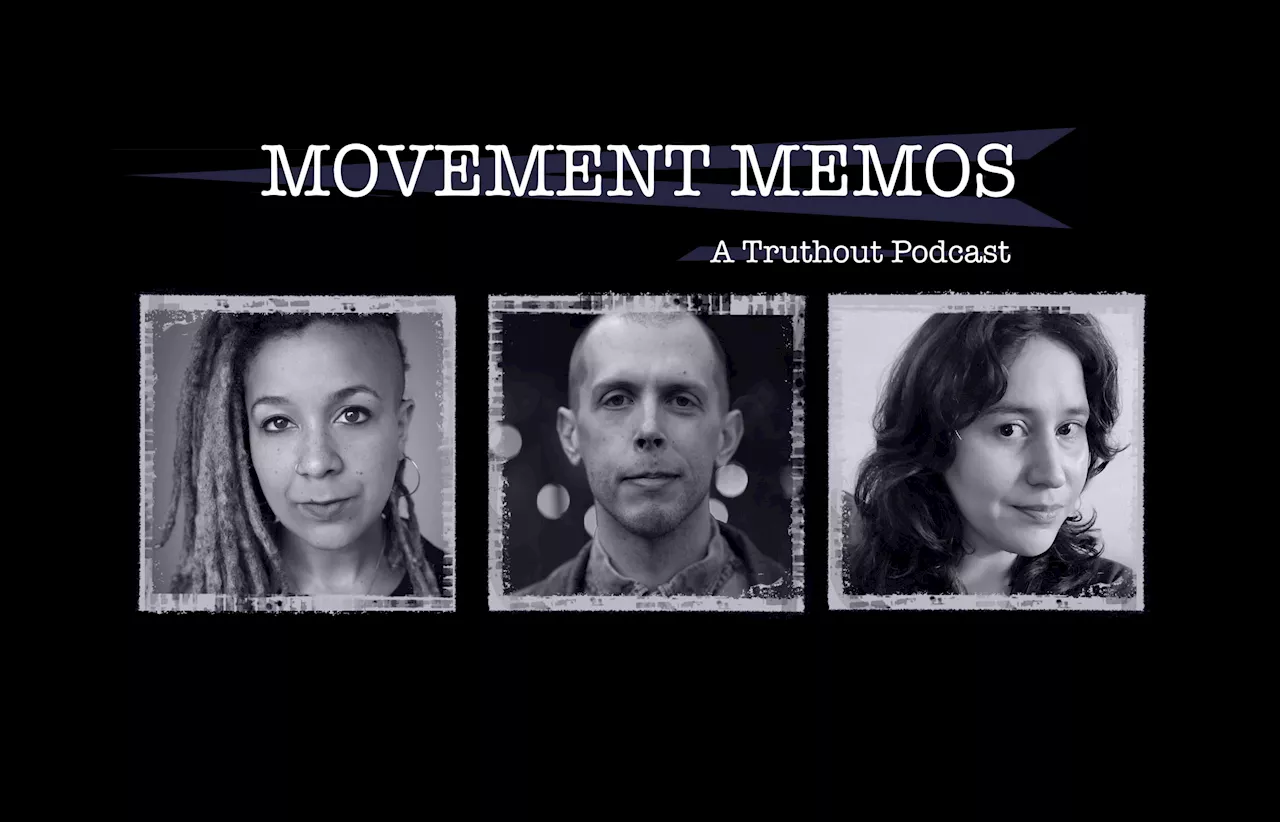“We can exist in a future beyond the status quo,” says author Robyn Maynard.
“The immediacy of the crisis that we’re in demands a new society and not in some imagined future, but now,” sayscoauthor Robyn Maynard. In this episode of “Movement Memos,” host Kelly Hayes talks with Maynard and David K. Seitz, author of, about the radical legacy of “Star Trek: Deep Space Nine” and how science fiction can shape our politics.Note: This a rush transcript and has been lightly edited for clarity. Copy may not be in its final form.
And there’s so much more we could say that I’ll save for later, but we’ve got that first same sex kiss in “Star Trek,” we’ve got women kicking a lot of ass in ways that they hadn’t been allowed to before, we have this service sector workers on the station’s bar unionizing, and many other exciting things I love about this show.So, some of my earliest memories of human existence period are of my dreams. When I was three, four and five, I remember having dreams about floating through outer space.
I also think it’s important to emphasize that there really wasn’t anything else like “Deep Space Nine” on television back then. Television in the 1990s was not politically bold. Some nine o’clock dramas had started showing people’s asses during sex scenes, and that was about as transgressive as mainstream TV got in those days — acknowledging that people had sex and asses.
For example, in 2021 in Toronto, there was confrontations between police and houseless communities and organizers to preserve encampments in tent cities that people had set up, not because they were seen as revolutionary, but because, otherwise, organized abandonment was all the more stark, right? So, even the relative freedom of movement within the 20-square block of the Sanctuary , in some ways, we see as, again, more substantive than the average size of a cell, of a jail or prison cell.
And I think that these kinds of parallels are really important because, of course, although they had very different outcomes after Attica, we saw some important reforms, but we did not see the end of a prison society, and in fact, actually saw the mass expansion of mass incarceration in the 1980s and ’90s. The kinds of resonances of this rebellion are ongoing today. And we continue to see this in hunger strikes and uprisings, in carceral sites all across North America.
What “Deep Space Nine” told us was that without rebellion in our time, that recovery and reinvention of how we live, and who we are to each other, simply cannot be. I appreciate that challenge, and I also appreciate the idea that, even when our struggles don’t pay off transformationally in an immediate sense, they can still heighten our potential and change the shape of what’s possible in the long run.
And so, it should be said that the depiction of the Bajorans is not unproblematic. In “DS9” and “TNG,” they’re portrayed mostly by white actors. And I think we need to critique that. There are similar critiques of Avatar, for instance, among other installments in the science fiction genre. But even so, it remains very difficult, unfortunately, to imagine sympathetic portrayals of colonized people defending themselves against occupation in mainstream American speculative fiction.
And I think it’s important, it’s not glorifying violence, the episode, right? We’re meant to empathize with the hostages, but it’s showing the conditions that facilitate these kinds of harm, which is the kinds of brutality that fosters the conditions for all kinds of uprising. So, when Sisko’s speaking with the guard and yelling, “You work here,” he’s also saving his life, but he’s yelling at him at the same time.
I also want to note that I think the critiques of white people playing Bajorans are valid, and I also want to emphasize to folks who weren’t alive in the 90’s that even flawed, symbolic representation was a big deal back then. I tend to compare “DS9’s” flawed representation to the movie, which was a big deal to Native people in the 90’s because it offered a positive portrayal of our resistance movements and a negative portrayal of the federal government.
And there are many aspects of Avasarala, her regime, that are quite harsh, quite brutal. We can see lots of evidence of imperialism, lots of evidence of organized abandonment. And I think those kinds of allegories matter in a moment when empire, neoliberalism, and colonialism are very good at trying to appropriate certain kinds of identity, political formations that actually have much more radical roots.
I know that “Star Trek: Discovery” has been very meaningful to some people, in terms of its treatment of trans identity and queer relationships.
Singapore Latest News, Singapore Headlines
Similar News:You can also read news stories similar to this one that we have collected from other news sources.
 Miles Chamley-Watson’s Self-Care, Skin-Care, and 4-Step Hair-Care RoutineMiles Chamley-Watson’s Self-Care, Skin-Care, and 4-Step Hair-Care Routine Director: Gabrielle Reich DP: Dominik Czaczyk Editor: Michael Suyeda, Paul Tael Associate Producer: Lea Donenberg Production Assistant: Spencer Mathesen Production Manager: Natasha Soto- Albors Production Coordinator: Ava Kashar Associate Talent Manager: Phoebe...
Miles Chamley-Watson’s Self-Care, Skin-Care, and 4-Step Hair-Care RoutineMiles Chamley-Watson’s Self-Care, Skin-Care, and 4-Step Hair-Care Routine Director: Gabrielle Reich DP: Dominik Czaczyk Editor: Michael Suyeda, Paul Tael Associate Producer: Lea Donenberg Production Assistant: Spencer Mathesen Production Manager: Natasha Soto- Albors Production Coordinator: Ava Kashar Associate Talent Manager: Phoebe...
Read more »
 Whole person healing: Mental health care must be integrated into cancer care.Whole person healing: Mental health care must be integrated into cancer care.
Whole person healing: Mental health care must be integrated into cancer care.Whole person healing: Mental health care must be integrated into cancer care.
Read more »
 Miles Chamley-Watson’s Skin Care, Hair Care, and Overall Wellness RoutineHow the two-time fencing world champion and Olympic medalist gets his skin glistening.
Miles Chamley-Watson’s Skin Care, Hair Care, and Overall Wellness RoutineHow the two-time fencing world champion and Olympic medalist gets his skin glistening.
Read more »
 Taking care of your body is taking care of your mental wellness.Our body is not made up of disconnected parts. If we want to improve how we think and feel, we need to establish what the whole body is doing.
Taking care of your body is taking care of your mental wellness.Our body is not made up of disconnected parts. If we want to improve how we think and feel, we need to establish what the whole body is doing.
Read more »
 Rita Ora’s 37-Step Hair-Care, Skin-Care, and Glowy-Makeup RoutineRita Ora’s 37-Step Hair-Care, Skin-Care, and Glowy-Makeup Routine Director: Gabrielle Reich DP: Claire Halloran Editor: Paul Tael Associate Producers: Lea Donenberg, Marisah Yazbek Production Manager: Natasha Soto- Albors Production Coordinator: Ava Kashar Post Production Supervisor: Alexa Deutsch Post Production Coordinator: Scout...
Rita Ora’s 37-Step Hair-Care, Skin-Care, and Glowy-Makeup RoutineRita Ora’s 37-Step Hair-Care, Skin-Care, and Glowy-Makeup Routine Director: Gabrielle Reich DP: Claire Halloran Editor: Paul Tael Associate Producers: Lea Donenberg, Marisah Yazbek Production Manager: Natasha Soto- Albors Production Coordinator: Ava Kashar Post Production Supervisor: Alexa Deutsch Post Production Coordinator: Scout...
Read more »
 Care/Don't Care: Three Things Before Akron + The SeasonFigured it's time to kick off this series I've done the past couple of seasons and plan to do again. I don't do a lot of research but these are just my thoughts. Feel free to argue, discuss, dismantle, or pile on as you all see fit.
Care/Don't Care: Three Things Before Akron + The SeasonFigured it's time to kick off this series I've done the past couple of seasons and plan to do again. I don't do a lot of research but these are just my thoughts. Feel free to argue, discuss, dismantle, or pile on as you all see fit.
Read more »
